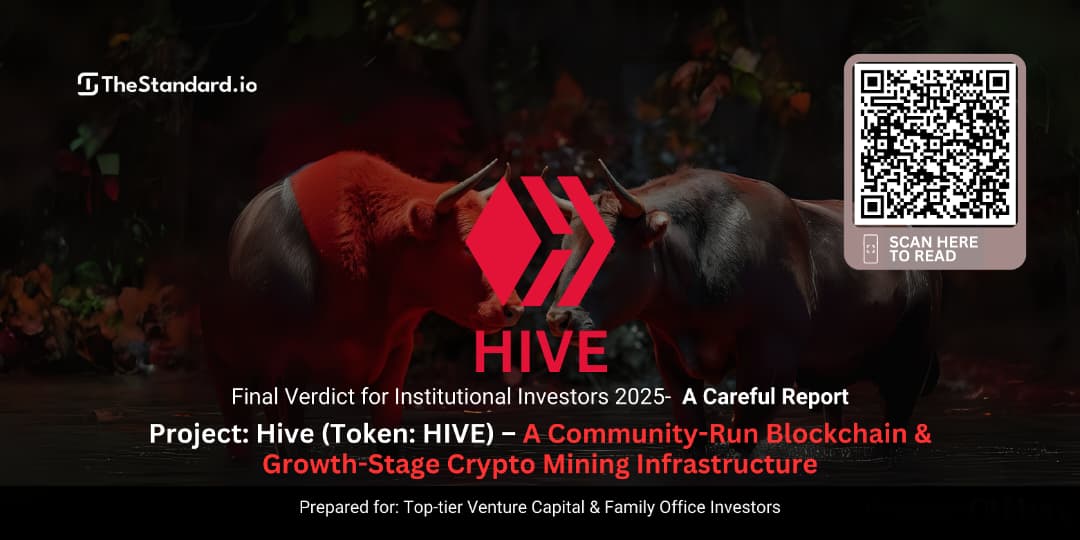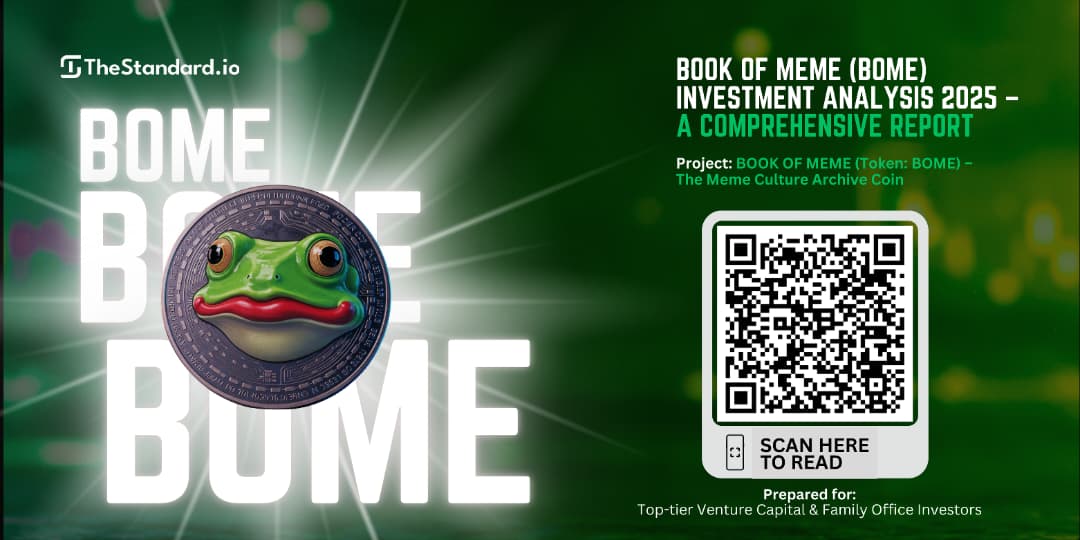Due Diligence on Avalanche (AVAX): Evaluating Its Position in the Blockchain Landscape (2025 Outlook) Part 2

Part 2 / Page 7
Avalanche’s ecosystem, with its expanding DeFi protocols, NFT marketplaces, and customizable subnets, is exposed to various cybersecurity threats:
Private Key Compromises: End-users and validators are vulnerable to phishing attacks, malware, and poor key management practices. Attackers often trick users into approving malicious transactions or stealing private keys, resulting in irreversible asset losses (www.halborn.com/blog/post/2025-blockchain-security-forecast-top-threats-for-the-year-ahead).
Endpoint Vulnerabilities: Wallet software, exchanges, and dApp interfaces can be exploited to gain unauthorized access or manipulate transactions. As Avalanche’s user base grows, so does the attack surface.
Supply Chain Attacks: Dependencies on third-party libraries and infrastructure providers introduce risks if these components are compromised, potentially cascading into Avalanche’s network.
Subnet Security Risks: The innovative subnet architecture, while offering flexibility, introduces complexity. Poorly designed or inadequately secured subnets could become vectors for attacks that impact user funds or network integrity (www.osl.com/en/academy/article/what-is-avalanche-avax-pros-cons-and-risks).
To mitigate these threats, Avalanche must continuously invest in security audits, penetration testing, bug bounty programs, and user education. However, the rapidly evolving threat landscape means no system can be entirely impervious, and high-profile breaches could damage user trust and slow adoption.
2. Regulatory Uncertainty and Potential Compliance Challenges
Regulatory frameworks governing cryptocurrencies remain fragmented and in flux globally. Avalanche’s innovative features, particularly its subnet architecture and staking model, may face heightened scrutiny as governments seek to regulate digital assets more tightly.
Global Regulatory Fragmentation: Different jurisdictions have varying approaches to crypto regulation. The European Union’s Markets in Crypto Assets (MiCA) framework aims to create a comprehensive regulatory regime, but its requirements could impose operational burdens on Avalanche subnets, especially those handling sensitive financial data (www.analyticsinsight.net/editorial/blockchain-future-at-risk-emerging-cyber-threats-in-2025-beyond).
Staking and Securities Laws: In the United States, agencies like the Securities and Exchange Commission (SEC) are increasingly scrutinizing staking services and token offerings. Avalanche’s staking rewards and token utility could be classified under securities laws, potentially leading to enforcement actions or the need for costly compliance measures (www.ng.investing.com/analysis/avalanche-avax-price-prediction-2025-2026-2030-207828).
Privacy and Data Protection: Subnets designed for enterprise use may need to comply with data protection regulations such as GDPR. Failure to meet these standards could limit subnet adoption or lead to legal penalties.
Taxation and Reporting Requirements: Evolving tax regulations on cryptocurrency transactions may increase the complexity and cost of operating on Avalanche, especially for institutional users.
Regulatory uncertainty creates a challenging environment for Avalanche and its ecosystem participants. Adverse regulatory developments could limit market access, reduce investor confidence, and slow ecosystem growth.
3. Intense Competition from Established and Emerging Blockchains
Avalanche operates in a highly competitive Layer 1 blockchain market, with many projects vying for developer mindshare, user adoption, and institutional partnerships.
Ethereum’s Dominance: Ethereum remains the leading smart contract platform with the largest developer community, ecosystem, and network effects. Its ongoing transition to Ethereum 2.0, which promises improved scalability and reduced fees, could erode Avalanche’s competitive advantages (www.avax.network/blog/peering-into-the-future-of-blockchain-2025-trends).
Solana: Known for its high throughput (theoretically up to 65,000 TPS), Solana attracts projects requiring extremely fast transactions. However, Solana’s centralization concerns and network outages remain risks (www.tradingcritique.com/crypto/what-is-avalanche-avax-pros-cons-and-how-it-works).
Polygon and Polkadot: Polygon offers Layer 2 scaling solutions compatible with Ethereum, while Polkadot’s parachain model enables interoperability and customization. Both platforms have strong ecosystems and developer support.
New Entrants: Emerging blockchains with novel consensus algorithms or niche focuses could capture market segments, increasing pressure on Avalanche to innovate and differentiate.
Avalanche must continue investing in technology, developer incentives, and ecosystem partnerships to maintain and grow its market position.
4. Market Volatility and Macroeconomic Risks
Cryptocurrency markets are characterized by high volatility, influenced by macroeconomic factors, geopolitical events, and investor sentiment.
Economic Uncertainty: Global economic slowdowns, inflationary pressures, or tightening monetary policies could reduce risk appetite, leading to capital outflows from cryptocurrencies including AVAX (www.fxopen.com/blog/en/analytical-avax-price-forecasts-for-2024-2025-2030-and-beyond).
Geopolitical Tensions: Conflicts or sanctions could disrupt blockchain infrastructure or restrict access to markets.
Speculative Bubbles: Crypto markets have historically experienced boom-and-bust cycles. Sharp price corrections can impact developer funding, user engagement, and institutional interest.
Market volatility poses challenges for Avalanche’s ecosystem growth and token valuation, requiring robust risk management by investors and stakeholders.
5. Technical Complexity and Risks in Subnet Security
Avalanche’s subnet architecture, while a key innovation, introduces complexity that can create security and operational risks.
Custom Subnet Vulnerabilities: Each subnet operates as an independent blockchain with its own rules and virtual machines. Poorly designed subnets may harbor bugs or security flaws that could lead to exploits or data breaches (www.analyticsinsight.net/editorial/blockchain-future-at-risk-emerging-cyber-threats-in-2025-beyond).
Interoperability Risks: Communication and asset transfers between subnets and the mainnet require secure bridges and protocols. Vulnerabilities in these cross-chain mechanisms could be exploited by attackers.
Governance Challenges: Managing decentralized governance across multiple subnets adds complexity and potential for conflicts or mismanagement.
Ensuring robust security standards, comprehensive audits, and clear governance frameworks is essential to mitigate these risks.
6. Dependence on Private Key Security and User Practices
A significant proportion of cryptocurrency thefts result from compromised private keys, often due to phishing, malware, or poor security hygiene.
User Vulnerabilities: End users may fall victim to scams or fail to secure their wallets properly, leading to irreversible losses.
Validator Risks: Validators hold large amounts of staked AVAX and must safeguard their keys. Compromise could disrupt network consensus or lead to theft.
Education and Tools: Avalanche’s growth depends on educating users and validators about best security practices and providing secure wallet solutions.
Failure to address private key security risks could undermine user confidence and network integrity (www.halborn.com/blog/post/2025-blockchain-security-forecast-top-threats-for-the-year-ahead).
7. Emerging Quantum Computing Threats
Though still in early stages, quantum computing poses a potential future threat to blockchain cryptography.
Cryptographic Vulnerabilities: Quantum algorithms could break current cryptographic schemes used for key generation and transaction signing, threatening the security of Avalanche and other blockchains.
Need for Quantum-Resistant Protocols: Avalanche will need to research and implement quantum-resistant cryptographic solutions to future-proof its network (www.analyticsinsight.net/editorial/blockchain-future-at-risk-emerging-cyber-threats-in-2025-beyond).
This represents a long-term technological challenge requiring proactive planning.
8. Ecosystem Fragmentation and Interoperability Challenges
As Avalanche’s ecosystem grows, the proliferation of subnets and dApps could lead to fragmentation.
User Experience: Managing assets and identities across multiple subnets may complicate user experience.
Liquidity Fragmentation: Token liquidity and activity could be spread thinly across subnets, reducing network effects.
Cross-Chain Coordination: Ensuring seamless interoperability and consistent security across subnets is complex.
Addressing these challenges is critical to maintaining a cohesive and vibrant ecosystem.
9. Reliance on Continued Developer and Community Engagement
Avalanche’s growth depends heavily on an active developer community and engaged users.
Developer Competition: Developers may migrate to other platforms offering better incentives or technology.
Community Governance Risks: Decentralized governance requires active participation; apathy or conflicts could weaken decision-making.
Sustaining developer interest through grants, tools, and community initiatives is essential.
10. Potential Impact of Negative Publicity or Network Failures
High-profile network outages, security breaches, or negative media coverage can damage Avalanche’s reputation.
Network Stability: While Avalanche has demonstrated resilience, any future downtime or failures could erode trust.
Security Incidents: Exploits or hacks can lead to loss of user funds and deter new participants.
Maintaining operational excellence and transparent communication is vital to preserving confidence.
Conclusion
Avalanche’s path to long-term success is challenged by a complex array of external threats. Cybersecurity risks, regulatory uncertainty, fierce competition, market volatility, and technological complexities require vigilant management and continuous innovation.
While Avalanche’s strengths provide a solid foundation, proactive risk mitigation, strategic regulatory engagement, and ecosystem development are critical to navigating these threats. Institutional investors should weigh these factors carefully alongside Avalanche’s growth potential to make informed decisions.
Sources:
www.analyticsinsight.net/editorial/blockchain-future-at-risk-emerging-cyber-threats-in-2025-beyond
www.halborn.com/blog/post/2025-blockchain-security-forecast-top-threats-for-the-year-ahead
www.ng.investing.com/analysis/avalanche-avax-price-prediction-2025-2026-2030-207828
www.avax.network/blog/peering-into-the-future-of-blockchain-2025-trends
www.zeeve.io/blog/how-avalanche-became-the-perfect-platform-to-launch-100-l1s-in-2025
www.fxopen.com/blog/en/analytical-avax-price-forecasts-for-2024-2025-2030-and-beyond
www.tradingcritique.com/crypto/what-is-avalanche-avax-pros-cons-and-how-it-works
www.osl.com/en/academy/article/what-is-avalanche-avax-pros-cons-and-risks
Thank you for taking the time to read this article. We invite you to explore more content on our blog for additional insights and information.
https://www.thestandard.io/blog
"If you have any comments, questions, or suggestions, please do not hesitate to reach out to us at [ https://discord.gg/K72hed6FRE ]. We appreciate your feedback and look forward to hearing from you."
CLICK HERE TO CONTINUE
PART 2 / PAGE 8: www.thestandard.io/blog/due-diligence-on-avalanche-avax-evaluating-its-position-in-the-blockchain-landscape-2025-outlook-part-2-8
6 of the best crypto wallets out there
Vulputate adipiscing in lacus dignissim aliquet sit viverra sed etiam risus nascetur libero ornare non scelerisque est eu faucibus est pretium commodo quisque facilisi dolor enim egestas vel gravida condimentum congue ultricies venenatis aliquet sit.
- Id at nisl nisl in massa ornare tempus purus pretium ullamcorper cursus
- Arcu ac eu lacus ut porttitor egesta pulvinar litum suspendisse turpis commodo
- Dignissim hendrerit sit sollicitudin nam iaculis quis ac malesuada pretium in
- Sed elementum at at ultricies pellentesque scelerisque elit non eleifend
How to choose the right wallet for your cryptos?
Aliquet sit viverra sed etiam risus nascetur libero ornare non scelerisque est eu faucibus est pretium commodo quisque facilisi dolor enim egestas vel gravida condimentum congue ultricies venenatis aliquet sit quisque quis nibh consequat.

How to ensure the wallet you’re choosing is actually secure?
Integer in id netus magnis facilisis pretium aliquet posuere ipsum arcu viverra et id congue risus ullamcorper eu morbi proin tincidunt blandit tellus in interdum mauris vel ipsum et purus urna gravida bibendum dis senectus eu facilisis pellentesque.
What is the difference from an online wallet vs. a cold wallet?
Integer in id netus magnis facilisis pretium aliquet posuere ipsum arcu viverra et id congue risus ullamcorper eu morbi proin tincidunt blandit tellus in interdum mauris vel ipsum et purus urna gravida bibendum dis senectus eu facilisis pellentesque diam et magna parturient sed. Ultricies blandit a urna eu volutpat morbi lacus.
- At at tincidunt eget sagittis cursus vel dictum amet tortor id elementum
- Mauris aliquet faucibus iaculis dui vitae ullamco
- Gravida mi dolor volutpat et vitae lacus habitasse fames at tempus
- Tellus turpis ut neque amet arcu nunc interdum pretium eu fermentum
“Sed eu suscipit varius vestibulum consectetur ullamcorper tincidunt sagittis bibendum id at ut ornare”
Please share with us what is your favorite wallet using #DeFiShow
Tellus a ultrices feugiat morbi massa et ut id viverra egestas sed varius scelerisque risus nunc vitae diam consequat aliquam neque. Odio duis eget faucibus posuere egestas suspendisse id ut tristique cras ullamcorper nulla iaculis condimentum vitae in facilisis id augue sit ipsum faucibus ut eros cras turpis a risus consectetur amet et mi erat sodales non leo.

Subscribe to our newsletter.
Get the latest alpha from us, and the Chainlink build program in an easy-to-read digest with only the best info for the insider.
It's an easy one-click unsub, but I bet you won't; the info is just too good.

Try the future of borrowing today.
Don't wait. It's easy to open a free smart vault
then start earning a yield and borrowing today.
0xf5A27E55C748bCDdBfeA5477CB9Ae924f0f7fd2e
USDs Contract on Arbitrum:
0x2Ea0bE86990E8Dac0D09e4316Bb92086F304622d










